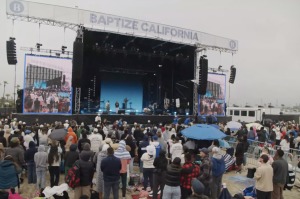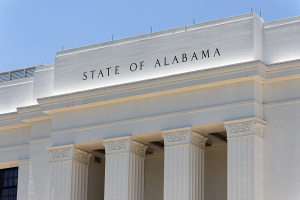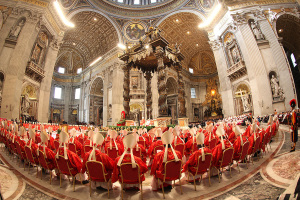US to Blame for Radical Islamist Attacks in the Middle East?
Expert Suggests to The Christian Post American-Led Toppling of Gaddafi Empowered Extremists
As U.S. embassies around the world remain on tight security after attacks in Libya, Egypt and Yemen that left a U.S. ambassador and three other Americans dead, some experts have said that although the U.S. government's response so far has been appropriate, its previous decisions have largely allowed for Islamist radicals in those countries to thrive.
"I think the U.S. response has been disciplined and measured; not an overreaction. The president made it clear that the U.S. would work to sustain good relations with all the relevant countries, but that guilty parties (i.e., the attackers) would be held accountable," said Bruce Buchanan, a Department of Government professor in the College of Liberal Arts at the University of Texas at Austin.
"I think it is unnecessary for the administration to do more than it has said it will do, unless there is some additional reason, not currently apparent, to consider additional action," he explained in an email to The Christian Post.
U.S. officials confirmed on Wednesday that U.S. Ambassador to Libya Christopher Stevens was among four Americans killed in attacks on the U.S. consulate in the eastern Libyan city of Benghazi after Islamic extremists attacked the building with guns and handmade bombs the night before.
Protests were also reported at the American embassy in Cairo, Egypt, where Islamists tore down a U.S. flag that was flying in honor of victims of the Sept. 11, 2001 terrorist attacks, and a day later in Yemen, where security forces clashed with protesters setting cars on fire and attacking the U.S. embassy there.
The attacks are not believed to be coincidental – U.S. officials have said the attack in Libya might have been planned in advance to coincide with the 11th anniversary of the Sept. 11, 2001 terrorist attacks against the U.S.
"It bears the hallmarks of an organized attack," said an anonymous U.S. official.
Prof. Alan J. Kuperman of the School of Public Affairs at the University of Texas at Austin, shared that he was surprised by the attack in Libya, as the last time a U.S. ambassador was killed was in 1979, referring to the shooting of Adolph Dubs, who died during a kidnapping attempt in Afghanistan.
"What didn't surprise me now that there are radical Islamists in Libya who have a little bit more free reign before our intervention and in that regard, the U.S.-led NATO intervention that overthrew (Muammar) Gaddafi and put the rebels in power – that backfired a bit," Kuperman said in an interview with KTBC-TV, which he shared with The Christian Post.
"We had a country, Libya, that was our ally, we had a government there that was fighting against radical Islamists, and by helping overthrow the government there, what we did basically was help empower radical Islamists," the professor continued.
Kuperman, who has published articles and book chapters on ethnic conflicts, military and humanitarian intervention and nuclear proliferation, said that he was highly skeptical the attacks in Libya and Egypt were spontaneous and coincidental, since they occurred on the 11th anniversary of 9/11. He noted that an anti-Islam low-budget movie on YouTube called "Innocence of Muslims," that reportedly portrays Islam founder Muhammad in a very negative light, has been blamed by some for sparking the attacks. Kuperman believes the controversial film might have only been a contributing factor to the anti-American sentiment in the region.
"And now, throughout the country, with all these militias, and some of them are pro-democracy and some of them are radical Islamists, they are folks who killed Americans in Afghanistan and in Iraq, and they came back home to Libya – so does it surprise me there are these radical Islamists – no, we helped put them there," the professor continued.
"For me there is definitely an al-Qaida link to this group," Kuperman added, noting reports that have cited the group that was formerly headed by Osama bin Laden.
U.S. officials have revealed that an Islamist militant organization called Ansar al Sharia, which translates as "Supporters of Islamic Law," is suspected of co-coordinating the attack on the U.S. embassy in Libya along with an al-Qaida-linked group called the Islamic Maghreb.
Open Doors USA, a watchdog organization that addresses Christian persecution around the world, has warned that the attacks on U.S. embassies could have bad consequences for Christian minorities across the Middle East and northern Africa.
"It illustrates how hot the fuel is that one spark ignites it so suddenly," Open Doors spokesman Michael Wood commented. "At some point we heard that people were protesting because of a film not even knowing what movie this was all about. And as was the case with the publishing of the Danish cartoon several years ago, the movie has been on the Internet several months."
"But it is the unpredictable momentum that suddenly creates a wave of protests and anger. Many of the Muslim fanatics link the U.S. with Christianity. So that puts believers in these hot spots such as Libya and Egypt directly in the line of fire," he added.
Open Doors noted that Christians in the Middle East need prayers now more than ever as they face an uncertain future.





























